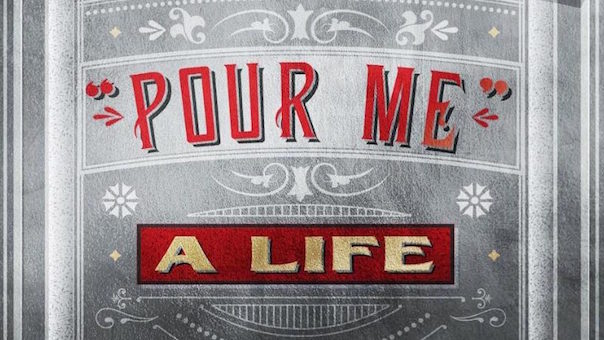
Release date: 09/27/2016
Genre: Nonfiction



Often, Christmas is a time for moaning after the night before, when the seasonal drinking is remembered (if remembered at all) with bewilderment and a degree of guilt. The illusion of drink-fuelled happiness — what James Joyce called ‘tighteousness’ — is familiar to most of us, even if the hangover seems a cruel price. The most effective remedy for a thumping head is to take a hair of the dog that bit you. Eddie Condon, the jazzman, recommended two quarts of bourbon; Samuel Taylor Coleridge swore by a breakfast of laudanum and fried eggs.

Billed as a book on recovery and addiction, Pour Me is really an autobiography centred on the 'fold' in Gill's life where he gave up the demon drink and the demon drugs. In aiming to recapture a decade or so's lost time, the author instead provides the essential context for the life that was to follow. Gill, whose new memoir Pour Me a Life (Blue Rider Press, 2016), is featured in “Nine More New Memoirs” in the September/October issue of Poets & Writers Magazine, talks about starting out as an artist, and his work as a journalist, columnist, and novelist.
- The memoir of the first thirty years of his life that he has published is entitled ‘Pour Me’ but this might equally have been ‘Clever Me’.
- The 'Pour Me A Strong One' Sessions Week #14. This is like the opposite to an AA group correct. Pages Public Figure Musician/Band Kezia Gill Videos The ' Pour.
By rights, the hangover should curb further drinking. Nobody wants to see their tongue pale and furry again in the bathroom mirror. The 17th-century word for the sickness attendant on excessive drinking, ‘crapula’, accurately hints at a sleazy kind of stupor. Misery may tread fast on the heels of joy, but some of us drink as though immune from the wall-eyed hangover of tomorrow. Alcohol impels us to happy flights of the imagination and encourages a sprightly chitchat. The unvarnished truth is that alcohol can also bring a nasty little crapula.
Like many alcoholics, the journalist Adrian Gill indulged in long-drawn-out benders with fewer and fewer intervals of sobriety in between. In 1984, at the age of 30, he realised that liquor had got him well and truly licked, and joined Alcoholics Anonymous. With the help of an AA sponsor he ‘12-stepped’ his way to recovery and, in gratitude, re-named himself A.A. Gill. He is now a highly paid (if sometimes highly annoying) restaurant and television critic for the Sunday Times.
Pour Me, Gill’s sweet-sour memoir of his drinking days and subsequent reform, is dedicated to ‘the friends of Bill’. Bill Wilson was the American businessman who, in 1935, co-founded AA. As a long-time ‘friend of Bill’, Gill is understandably reticent about the details of his recovery or who turns up at his meetings because membership insists on anonymity (and nobody likes a grass). On the other hand, Gill does not flinch from describing the accidents, illnesses, social impairments and other damage done by the years of addiction. Unable to look a decent breakfast in the face, Gill was, by his own admission, a hopeless lush.
Born in 1954 to the documentary film-maker Michael Gill and the actress Yvonne Gilman (best known for her role as Mme Peignoir in Fawlty Towers), Gill was a sensitive young man who went to the Slade in order to learn to paint. Painting was his first love, but it seems he was no good at it. At his Quaker boarding school, dyslexia had already made his life a misery. In the late 1970s, apparently irretrievably drunk, Gill worked in a porn shop in Soho and got to know the area’s Maltese-run sex industry with its clip joints, near-beer parlours and blue-movie fleapits.
Briefly married to Cyril Connolly’s daughter, Cressida Connolly, Gill drank to blackout even as he still dreamed of becoming an artist. The more he drank, the further he seemed to be removed from the likelihood of any sort of twinge of conscience, let alone a crapulous head. Having dried out at AA, he was taken on by Tatler as a feature writer. He became good at his job, turning out witty copy brocaded with Nabokov-like literary flourishes, terse put-downs and snobbish asides. Pour Me, not unlike his newspaper journalism, suffers at times from verbal excess (‘pulsatingly pulchritudinous’, ‘the winnowing flail of mortality’). The notion that literary style is a decoration — something you can apply to your subject — is not always attractive.
On the whole, though, Pour Me is a delight. In pages of well-turned anecdote, Gill chronicles a rackety life made good. The book is nicely designed, moreover (though why there should be two Chapter 13s is a mystery), and I liked the discussions of, among other things, the difficulties of parenting and marriage in late middle age. I’m not sure that Gill is altogether to be trusted, however. Not long ago he insisted on taking me to lunch in return for the notebookful of Haiti contacts I had passed on to him. The lunch never materialised, but perhaps that should not surprise me. Adrian Anthony Gill is an alcoholic, and alcoholics are a mess of mendaciousness, gleeful irresponsibility and inveterate promise-breaking. I should know. I’m a friend of Bill too.
Aa Gill Pour Means
